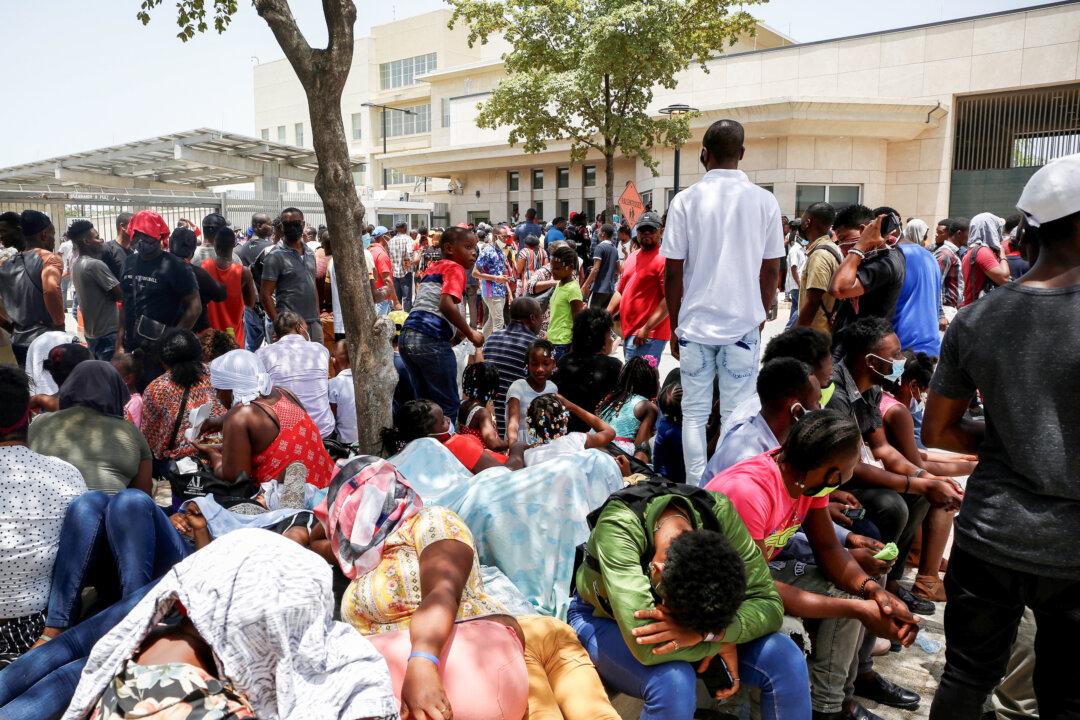The United States has no plans to send troops to Haiti as it spirals into chaos; it also has no current plans to activate its “maritime mass migration” protocol to allow the Coast Guard and Navy to interdict illegal immigrant flotillas and return them to their point of origin or to a port in a third nation, a top Defense official says.
Assistant Secretary of Defense for Homeland Defense and Hemispheric Affairs Rebecca Zimmerman was asked by Reps. Matt Gaetz (R-Fla.) and Carlos Giménez (R-Fla.), a former Miami-Dade County mayor, about the Pentagon’s Haiti contingency plans during a March 12 House Armed Services Committee hearing on Western Hemisphere national security challenges.





